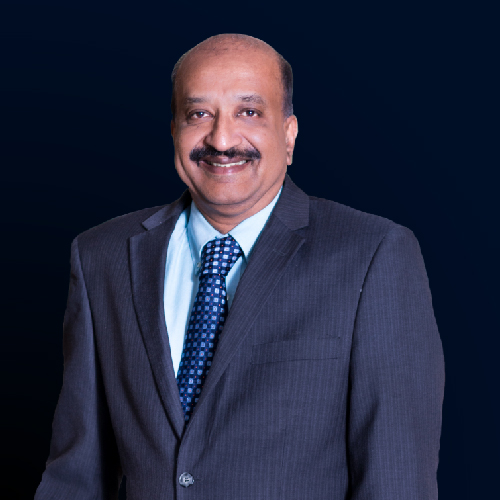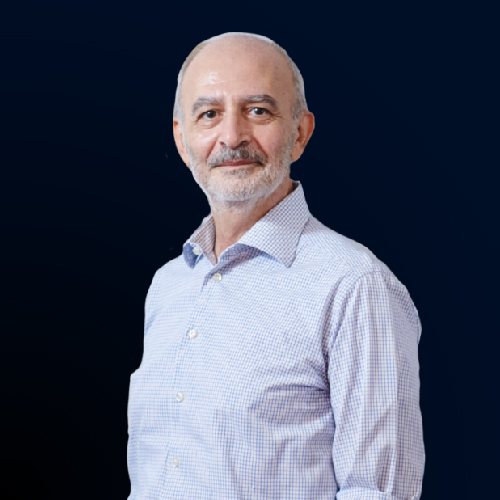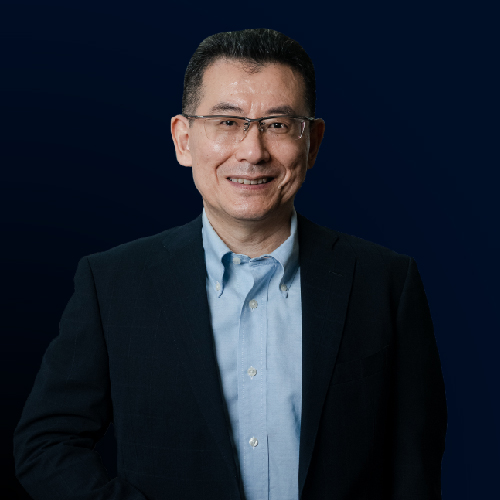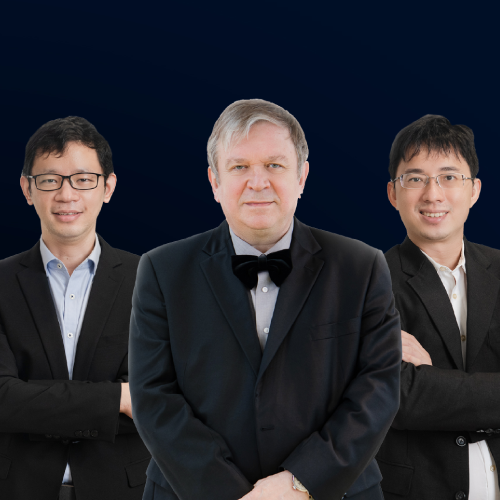President's Science and Technology Awards (PSTA) 2020
.jpg?sfvrsn=f3cc1961_2)
The President's Science and Technology Awards (PSTA) are the highest honours bestowed on exceptional research scientists and engineers in Singapore for their excellent achievements in science and technology. These national awards are given annually to recognise and celebrate outstanding and invaluable contributions by individuals or teams to the research and development landscape in Singapore.
2009 marked the first year that the President's Science & Technology Awards were presented. The awards, formerly known as the National Science & Technology Awards since 1987, were elevated to the status of the President's awards to highlight and give due recognition to the important role research scientists and engineers play in Singapore. The prestige of the President's awards underpins Singapore's efforts to raise the level of excellence in research and strengthen the growing community of scientific talent in Singapore.
The President's Science & Technology Awards is made up of three different awards, namely, the President's Science & Technology Medal (PSTM), the President's Science Award (PSA) and the President's Technology Award (PTA). The winners of the respective awards have been carefully chosen through a rigorous process by a selection committee comprising key representatives from the government, industry, academia and public research institutes.
Below are the PSTA winners for 2020.
President’s Science & Technology Medal
Prof Ranga Rama Krishnan
Chairman, National Medical Research Council
Chief Executive Officer, Rush University System for Health
President’s Technology Award
Prof Dario Campana
Professor and Mrs Lee Kong Chian Chair in Advanced Cellular Therapy, Department of Paediatrics, Yong Loo Lin School of Medicine, NUS
President’s Science Award
Prof Liu Jianjun
Deputy Executive Director, Genome Institute of Singapore, A*STAR
Professor, Yong Loo Lin School of Medicine, NUS
President’s Science Award
Prof Nikolay I. Zheludev (centre)
Director, Centre for Disruptive Photonic Technologies, NTU
Co-Director, The Photonics Institute, NTU
President’s Chair in Physics, School of Physical & Mathematical Sciences and School of Electrical & Electronic Engineering, NTU
A/Prof Chong Yidong (right)
Division of Physics & Applied Physics, School of Physical & Mathematical Sciences, NTU
Associate Chair (Students), School of Physical and Mathematical Sciences, NTU
A/Prof Zhang Baile (left)
Associate Professor, Centre for Disruptive Photonic Technologies & School of Physical and Mathematical Sciences, NTU
PSTA 2020 Ceremony HighlightsThree individuals and a team of three were conferred the President’s Science and Technology Awards (PSTA) by President Halimah Yacob at the awards ceremony held at the Istana on 18 December 2020. |
President's Science and Technology Medal 2020
Professor Ranga Rama Krishnan
Chairman, National Medical Research Council
Chief Executive Officer, Rush University System for Health
“For his outstanding leadership contributions to advancing the health and biomedical sciences research and innovation sector in Singapore, particularly through the strengthening of academic medicine, translational and clinical research, and the promotion of technology transfer and entrepreneurship to enhance health and support economic development in Singapore”
Professor Ranga Rama Krishnan is a renowned global leader in academic medicine and healthcare. He is currently Chairman of the National Medical Research Council (NMRC), Ministry of Health (MOH) Singapore; Chairman, National Health Innovation Centre (NHIC) Singapore; and Chief Executive Officer of the Rush University System for Health (RUSH) in the United States (US). Throughout his career, he has been a passionate and effective advocate of translational clinical research, education and entrepreneurship. He has contributed greatly to the transformation of Singapore’s health and biomedical sciences sector through the formulation of novel research strategies, the development of innovative education methods, and the nurturing and recruitment of high quality talent. Professor Krishnan has had a particular impact on the strengthening of translational clinical research and innovation. These have resulted in significant health care, education and economic benefits for Singapore.
As Dean of Duke-NUS Medical School, Professor Krishnan played a critical role in laying the foundations for the SingHealth Duke-NUS Academic Medical Centre. This was done in close partnership with SingHealth, as well as the Agency for Science, Technology and Research (A*STAR) and the National University of Singapore (NUS). Under his leadership, Duke-NUS established five signature research programmes to address the key healthcare concerns of Singapore and Asia. These cover cancer and stem cell biology, neuroscience and behavioural disorders, emerging infectious diseases, cardiovascular and metabolic diseases, as well as health services and systems research. Professor Krishnan was also instrumental in building outstanding centres of excellence, including the Centre for Ageing Research and Education, Centre for Computational Biology, Centre for Quantitative Medicine, Centre of Regulatory Excellence, Centre for Technology and Development, as well as the Lien Centre for Palliative Care.
Professor Krishnan paid close attention to recruiting and nurturing outstanding research faculty members and students. Together, these engineers, biochemists, physician-scientists and entrepreneurs formed a robust network to create new products, devices and companies focused on improving healthcare outcomes. This vibrant and productive community continues to play a significant role in the growth and prominence of the biomedical sector in Singapore.
As a member of the SingHealth Board, Professor Krishnan helped foster several important joint initiatives including the Academic Medicine Education Institute, and the Academic Medicine Research Institute. He also established strong links with A*STAR to transfer technologies and build new ventures based on research from A*STAR's institutes and programmes. He was Co-Chairman of the Singapore Clinical Research Institute, and built it into an effective platform and gateway for industry and public sector clinical trials.
As Chairman of NMRC, Professor Krishnan was effective in strengthening partnerships between health care institutions, hospitals, universities, the National Research Foundation (NRF) and A*STAR to promote the translation of fundamental research into beneficial applications. He is also the inaugural Chairman of NHIC Singapore, which provides expert support and funding to the clinical sector to expedite the development of healthcare innovations into market-ready products.
Professor Krishnan has made the science of learning a priority in his work. His leadership enabled NUS to build a strong research and translational programme in this area, and he has also chaired the evaluation of research proposals on science of learning for NRF.
His contributions extend well beyond Singapore. He has held, and continues to hold, important leadership positions in the areas of medicine and health care systems, including serving on the board of Community Health Systems in the US.
He has multiple patents and fostered numerous startups in the education, neuroscience, data science, technology and therapeutic spheres in Singapore and the US. His achievements have been recognised through numerous awards including the Laughlin award, Geriatric Research award, and the Mood Disorders Research award from the American College of Psychiatrists. He also serves as a member of several professional societies, including the American Psychiatric Association and the American Association for the Advancement of Science. He is also an elected member of the United States National Academy of Medicine.
President's Science Award 2020
Professor Liu Jianjun
Deputy Executive Director, Genome Institute of Singapore, Agency for Science, Technology and Research
Professor, Yong Loo Lin School of Medicine, National University of Singapore
“For his outstanding contributions to genetic studies of Asian populations, which has advanced biomedical research and precision medicine, and benefited clinical practice in the prevention of diseases and adverse drug responses”
Professor Liu Jianjun is a leading human geneticist who studies Asian populations and has advanced the understanding of diseases and treatment outcomes among Asians through his work in the field. He is currently the Deputy Executive Director at the Agency for Science, Technology and Research’s Genome Institute of Singapore (GIS) and Professor at the Yong Loo Lin School of Medicine, National University of Singapore (NUS).
The genetic diversity of humans is not only shown in the varied physical appearances of individuals, but also in their different risk levels in developing diseases, as well as their differential responses to treatment. Genetic diversity is the result of human evolution and migration and understanding it allows us to understand our history, and our health.
In the past decade, there has been a revolution in human genetic research, ranging from single gene analysis to systematic genomic studies, leading to the discovery of over 100,000 genetic variants that are related to human diseases and health. Asian populations are often understudied and this, if not remedied, would preclude Asians from enjoying the full benefits of the genetic revolution with its promise of improving health and treatments.
By collaborating with clinician scientists and many research groups in Singapore and Asia, Professor Liu has established an internationally recognised and distinctive research programme on the genetics of Asian populations. His research has not only advanced the biological understanding of diseases that are prevalent in these populations, but he has also discovered Asian biomarkers that have been translated into clinical practice and enabled the prevention of diseases and adverse drug responses (ADRs).
For example, by carrying out systematic studies of leprosy, Professor Liu has revealed the molecular mechanism by which the human immune system regulates and defends against the mycobacteria that are responsible for this infection.
One of the key drugs used for treating leprosy is dapsone, and Professor Liu has also discovered that an Asian specific biomarker, HLA-B*1301, is the genetic determinant of Dapsone Hypersensitivity Syndrome (DHS), a deadly ADR associated with its use. This discovery has been successfully translated to the clinical setting with the implementation of HLA-B*1301 testing before dapsone is used thereby reducing the risk of DHS.
Professor Liu was part of a team that discovered the specific risk strains of Epstein-Barr Virus (EBV) which are most strongly associated with the development of Nasopharyngeal carcinoma (NPC), a nose cancer that is endemic to South China and Southeast Asia, but very rare in other regions. These EBV risk strains were found to be much more common in NPC endemic regions and were responsible for over 80 per cent of the overall risk for developing NPC. These EBV risk strains can thus be used as biomarkers to identify individuals with high risk for NPC, which will enable early diagnosis and improved survival rates. The discovery also opens up the possibility of preventing NPC by eliminating infection with these EBV risk strains for example, through vaccination.
Professor Liu has also carried out a pioneering study where 5,000 Singaporeans were analysed by whole genome sequencing. This study revealed the genetic architecture and evolutionary history of Asian populations, created the largest genetic bank of Asian populations and piloted technologies and local infrastructure for high-throughput genome sequencing analysis, empowering further genetic studies of Asian populations. This effort was part of the initial phase of the National Precision Medicine programme in Singapore.
Besides leading a competitive research programme on Asian genetics, Professor Liu has also contributed to building technical capabilities and infrastructure for high-throughput genomic analyses in Singapore.
Professor Liu as a leading Asian genetic studies expert has published over 400 papers, including a dozen papers in top medical and scientific journals, such as New England Journal of Medicine, Cell, and Nature Genetics. With over 32,000 citations and a H-index of 81 (Web of Science 2020), Prof Liu’s research is well-cited by the international research community. In recognition of his research excellence in the field, Professor Liu was awarded the “Chen Young Investigator Award” by the Human Genome Organization in 2011 and was named one of “The World’s Most Influential Scientific Minds” by Thomson Reuters in 2015.
President's Science Award 2020
Professor Nikolay I. Zheludev
Director, Centre for Disruptive Photonic Technologies, Nanyang Technological University Singapore (NTU)
Co-Director, The Photonics Institute, NTU
President’s Chair in Physics, School of Physical & Mathematical Sciences and School of Electrical & Electronic Engineering, NTU
Associate Professor Chong Yidong
Division of Physics & Applied Physics, School of Physical & Mathematical Sciences, NTU
Associate Chair (Students), School of Physical and Mathematical Sciences, NTU
Associate Professor Zhang Baile
Associate Professor, Centre for Disruptive Photonic Technologies & School of Physical and Mathematical Sciences, NTU
“For their global leadership in, and fundamental contributions to, topological nanophotonics research, which underpins the development of a new generation of light-based technologies”
Professors Nikolay Zheludev, Yidong Chong, and Baile Zhang, are pioneers in topological nanophotonics, a new field in the science of light that has emerged in the past decade. They use the branch of mathematics known as topology to design nanophotonic devices and applications with unprecedented functionalities. Their work has led to breakthroughs in the fundamental science of light, as well as new technological applications underpinned by the topology of light.
Photonics, the science of generating, harnessing and manipulating light, is a critical enabling technology of the 21st century. It underpins numerous other areas of technology, including telecommunications, energy harvesting and conversion, lighting and displays, advanced manufacturing and metrology, security and defense, imaging, microscopy and more. Nanophotonics is a subfield of photonics that involves using nanotechnology to create devices, such as artificial designer materials or “metamaterials”, to control light at the nanoscale. Topology, on the other hand, is a branch of mathematics that deals with the properties of objects that are invariant under continuous deformations (such as bending, stretching, and shrinking), without regard to geometrical details.
Topological nanophotonics exploits the topological properties of light, which are unaffected by continuous perturbations of the system and hence are more robust than ordinary geometric features. The team has designed artificial structured materials in which light waves can flow around corners and obstacles without scattering, unlike ordinary light waves. They have also found ways to use topologically structured light in advanced optical metrology and imaging, to resolve objects that are too small for conventional optical microscopes.
The team’s contribution to the discipline include fundamental advances in understanding the role of topology in light, new topological photonic media for lasers and photonic chips with robust-in-use and tolerant-in-manufacturing features, light pulses with unique topological properties, and the use of topologically structured light for super-resolution microscopy and nano-metrology.
The team’s research is conducted at the Centre for Disruptive Photonic Technologies (CDPT) founded and directed by Professor Nikolay Zheludev. Since its formation in 2012, CDPT, a part of the Photonics Institute at Nanyang Technological University Singapore, has become one of the world’s foremost centres of nanophotonics research. Since 2016, the team has been spearheading research on the fundamentals of topological nanophotonics and currently focuses on developing technological applications of the new concepts.
The team has an exceptional scientific publication record which includes 36 papers in the Science and Nature families of journals; delivery of 23 plenaries and keynotes, and 85 talks at major international conferences. Their papers have received more than 5,000 citations a year. They have won major research awards globally, and Professor Zheludev has been awarded fellowships of the Royal Society (UK) and the National Academy of Engineering (USA).
President's Technology Award 2020
Professor Dario Campana
Professor and Mrs Lee Kong Chian Chair in Advanced Cellular Therapy, Department of Paediatrics, Yong Loo Lin School of Medicine, National University of Singapore
“For his groundbreaking work in developing methods to convert immune cells into safe and effective anti-cancer therapies that have transformed the treatment of leukaemia”
Professor Dario Campana is currently the Mrs Lee Kong Chian Chair in Advanced Cellular Therapy in the Department of Paediatrics at the Yong Loo Lin School of Medicine, National University of Singapore (NUS). In just nine years in Singapore, Prof Campana patented 16 new cell-based therapies and set up a highly innovative cell therapy programme at the National University Health System (NUHS). He is recognised for his outstanding work in transforming the treatment of leukaemia, particularly Acute Lymphoblastic Leukaemia (ALL) which is the most common cancer in children.
The main focus of Professor Campana’s research is to use immune cells to treat cancer. Among these are the use of CAR-T cells, where the most remarkable results have been obtained in ALL. This represents a noteworthy example of translational research that has converted fundamental biology discoveries into effective therapy.
Despite the discovery of many new drugs, cancer remains the most common cause of death in Singapore. Even when treatment is effective, the side effects of such therapies can be serious. A completely new way to treat cancer is necessary. Harnessing the human body’s immune cells represents an attractive option but it was, until recently, elusive.
About 20 years ago, Professor Campana’s laboratory set out to develop a more effective and less toxic treatment for ALL using T cells, a type of white blood cell that plays an important role in the immune system. The team designed a special receptor, called the chimeric antigen receptor (CAR), that could recognise a target strongly expressed in ALL. When T cells are equipped with the CAR, they latch onto leukaemic cells, kill them and propagate, mounting a powerful anti-leukaemic response. Clinical trials so far showed that blood T cells that are extracted from ALL patients, modified with the CAR and reinfused back into the patients, could cure ALL even when all other therapies had failed.
The CAR developed by Professor Campana’s team eventually became the key component of the first product of its kind approved by the US Food and Drug Administration, and is now marketed worldwide. For this discovery, Professor Campana received the 2019 Jacob and Louise Gabbay Award in Biotechnology and Medicine.
Professor Campana’s laboratory at NUS recently developed a new cell therapy for patients with T-ALL, a type of leukaemia different from the more common B-ALL form. The clinical experience at NUHS with children and adults with either T- or B-ALL treated with CAR-T cells made in Professor Campana’s laboratory is extremely encouraging and supports the potential of this technology. These results represent the dawn of a new era in ALL treatment, one that promises to produce greater remission rates, lower toxicities and a better quality of life during and after treatment.
Besides ALL, CAR-T cells have been proven to be useful in treating lymphoma and myeloma, and may also benefit patients with other forms of cancer in the future. Possible applications of immune cell therapy in other areas of medicine, such as autoimmune diseases, solid organ transplant, infectious diseases and aging are on the horizon as well.
Many of Professor Campana’s patents have been licensed and he is the scientific founder of three biotechnology companies. He has over 350 publications, including articles in the New England Journal of Medicine, Nature, Lancet, Lancet Oncology and the Journal of Clinical Investigation, and his work has been cited more than 35,000 times, with a h-index of 101 (Google Scholar 2020). He is also an elected member of the American Society of Clinical Investigation and of the American Association of Physicians. In 2020, he was named Researcher of the Year by the Yong Loo Lin School of Medicine, NUS, and was the recipient of the NUS Research Recognition Award.
A*STAR celebrates International Women's Day

From groundbreaking discoveries to cutting-edge research, our researchers are empowering the next generation of female science, technology, engineering and mathematics (STEM) leaders.
Get inspired by our #WomeninSTEM




